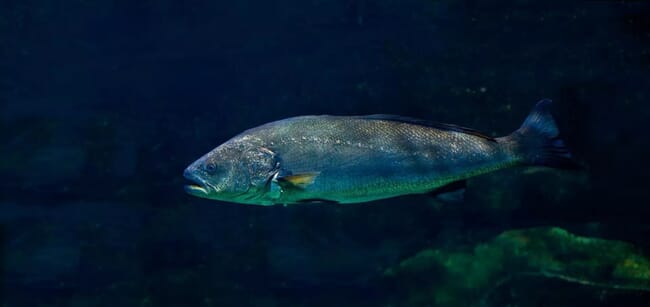
© BioMar
A lesser known counterpart of seabass and seabream, the meagre (Argyrosomus regius) has had but small success as an aquaculture species, with annual global production hovering around 50,000 tonnes, with much of this focussed within mainland Europe.
Despite its seemingly low popularity, researchers from the EUFish_SustainableGrowth (EUFSG) project, alongside partners at the Maltese aquaculture research company AquaBiotech Group, hope to promote the production and consumption of meagre as part of wider efforts to develop new aquafeed ingredients for the species.
Led by Professor Tiziana Pepe of the University of Naples Federico II, the main aim of the EUFSG project is to develop novel feeds for meagre using wild fish species such as Atlantic horse mackerel and bogue, which are widely regarded as by-products of fisheries. However, Atlantic horse mackerel populations are currently considered to be below the safe biological limit for exploitation by the International Council for Exploration of the Sea (ICES), with research suggesting similar vulnerability in bogue populations.
The project also aims to explore consumer acceptance of meagre. The species is not well known amongst consumers, being largely absent from supermarkets and offered only occasionally in several European countries, mostly in premium restaurants and sushi bars.
"Meagre is still not largely consumed, but it definitely deserves a spot on the dinner table. If scientists and policy makers work together to promote this species and develop an increasingly sustainable farming system,
meagre could soon become as common as seabream and seabass in the Mediterranean," said representatives of the project, in a press release.




